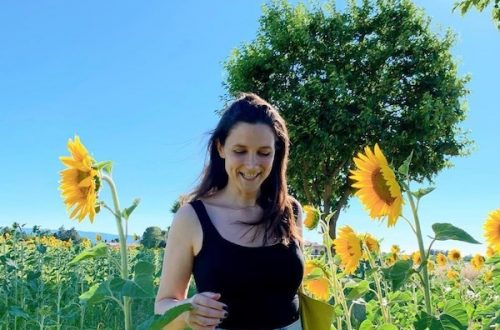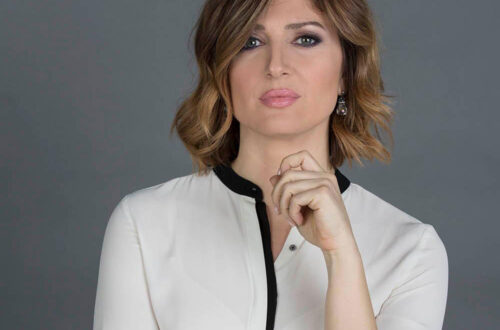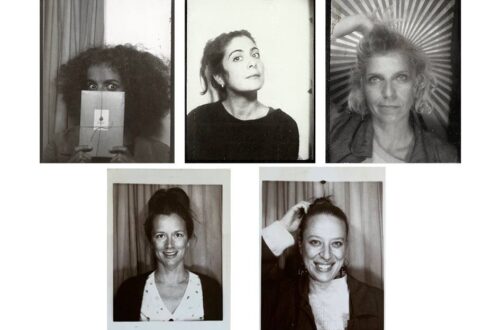Freedom from the Known
Featured in the January 2021 Issue of The Open Doors Review and included in the Series: letters from Lockdown. View Magazine Here.
By Sezgi Uygur
At the beginning of this year I left my home with a luggage packed for a month and I don’t know where home is anymore.
Dwelling in Imagined
and Material comforts
Until last winter my life had a rhythm; freelance work and social life, aperitivo in piazza, big Italian meals on holidays. I lived in Rome for 12 years; in the same apartment the whole time, in the artistic and working class neighborhood of Pigneto. My main source of income was tourism, at the beginning as a multilingual interpreter, then as a guide for tailor-made art tours. My secondary commitment after my freelance job was working as an artist’s assistant two days a week, taking walking breaks at the historic center to buy supplies and to get inspiration. I would cherish my moments of solitude at home, when I studied for my tours, worked on new ideas for exhibitions or meditated with my favorite tea from that tiny shop at the Pantheon. Twice a week I would ride to my therapist’s office, then ponder while trail running at the historical Caffarella park, maybe drop by my best friend’s apartment for lunch. I would start Saturdays with a short ride to the neighborhood market, buy whatever my favorite vendor has seasonally, meet friends over lunch, and stay for a drink on the pedestrian street. Even though I was living far from where I was born, I felt at home.
In a way my privilege was three-fold. I was white and college educated and thus blended in as an expatriate among others. While my skin color concealed my immigrant identity and protected me from racial oppression in the public space, I was invited to join the BIPOC-only discussions apart from white Italians. Political engagement was possible unlike the country I was born in, either through active participation in neighborhood projects, bike rides, art workshops, self defense classes for women or crowdfunding over meals and drinks. In her article, “Identity, Skin, Blood, Heart,” Minnie Bruce Pratt narrates the place that she missed, which “seemed like a memory of childhood, though it was not a childish place. It was a place of mutuality, companionship, creativity, sensuousness, easiness in the body, curiosity in what new things might be making in the world, hope from that curiosity, safety, and love.” That place existed for me in this gray area between public and private space of autonomous occupied centers. Contrary to the author’s experiences, my sceptical eye never let me have a childish perception of it either, sexism was still a constant battle and transphobia was an issue in feminist and lesbian-feminist spaces. Aligned with the porosity of these places, at the right time, people would create that ideal place Pratt defined.
Arriving in this state of liberation wasn’t an accident but a choice. I lived with my husband for the first ten years and paid my rent for the same three-room apartment alone for the last two years. I considered my economic freedom to be essential from the moment I moved in, kept separate accounts and paid my share. I left my well-paid office job, refusing a life in the suburbs, someone else’s dream life, with a mortgage, a car and kids. We got a consensual divorce after we fell out of love, meaning that I moved on to my single life with no alimony, but my books, my clothes, my three bikes and the only connection to my roots: a couple of family heirloom kilim carpets. Even though my partner and I began our journey as lovers with legal papers to facilitate my move to Rome, losing my identity as a wife hasn’t been easy. I knew that I was more privileged than most Turkish and Italian women, I didn’t need to ask my parents opinion, I’ve merely communicated I was having a divorce. I was free to refuse the concepts that Goliarda Sapienza calls in her long banned book, the Art of Joy, as “the most rotten”: sublime, duty, tradition, humility, modesty, piety, sacrifice, resignation.
The Rupture
Last winter I had an operation on my Achilles heel confining me home for about three months, with brief daily intervals outside, just enough to leave me exhausted for the rest of the day. In February 2020 I came to Istanbul for daily physiotherapy sessions while staying at my parents’ apartment and visiting my long-distance partner. The next month my flight got canceled and Italy closed its borders. My ex-husband had my keys to take care of my plants, he was able to leave his apartment on short notice and to take on my rent while keeping my belongings for an indefinite period. I had a choice to make before the closure of cities, between moving back to my parents’ apartment, using my savings on rent with no plans ahead, moving in with my friends living in the mountains, or with my long-distance partner.
I would advise anyone to take their time before moving in with their partners but this was different. How long would the quarantine last? A month tops, or so we thought. Her studio apartment was in the center of Istanbul, an open-space floor with a tiny bathroom, a bed, a couch, a kitchen and a series of tables in front of the windows. The apartment was connected through an external spiral staircase to another apartment, rented by a friend, a two-story space with a bathroom that we all used. The independent building had a ground floor with an entrance, a laundry room and a dressing room. From the moment I moved in, we started taking extra measures for hygiene with each tiny piece of information we got.
To keep the anxiety at bay, keeping a resemblance of a routine was the most important thing. I started doing short yoga sessions in the morning and going to bed at midnight. Every Sunday we were meditating on zoom with dozens of people and drawing together with another artist I’m backing up through Patreon. Twice a week, I had my psychoanalysis sessions over the phone and after that I walked to the organic grocery vendor for a quick chat through the shop window. I never took public transport until summer, leaving home for leisure walks mostly with my partner, or meeting a couple of their friends in the tiny park of the neighborhood, with masks on and distanced. I left home alone only for chores, a terrible decision for my mental health, but the only logical choice for our sanity.
Previous to the pandemic, I had strict rules for my household, regarding my trash separation and my vegan nutrition, although I learned to be flexible outside, in social settings at my place or elsewhere. Being confined with other people in someone else’s house helped me overcome this challenge, I was and still am in a state of suspension, I make every choice in an awareness of the people I’m surrounded with and the space I inhabit at that moment. Another problem was finding a private setting for my psychoanalysis sessions, with an adequate wifi connection to call my Italian therapist. I’m very lucky to never feel lonely during the isolation period but my biggest challenge was finding a moment of solitude.
Testing the Ground
In May I had a certification program for my job in Italy, planned prior to the pandemic. Around the same dates the Italian consulate informed me about an extraordinary flight to bring stranded citizens home, with a tenfold price compared to my suspended ticket. The institute was at the epicenter of the pandemic in Italy, and before I decided to catapult myself to Modena, the program became available online. A friend who wasn’t able to rent her empty apartment on our street in Istanbul, let me use it for free for my classes. Towards the finals of my program I was spending the whole day studying, coming back to my partner’s place to sleep. For a period, they took a bigger part of the domestic labor. This became quite a challenge for us; even though it wasn’t a problem of gender, it was a problem of gender-roles. I was the one leaving home every morning, building myself and identity, doing an activity towards my own future. They were the one remaining at home, cooking and cleaning the space we both inhabited. They told me they weren’t the housewife. Neither of us served men in our lives. I was the one married to a man once but lucky enough to be served meals and divide the domestic labour as I pleased. We worked and continue working on the issue by discussing ways of equal responsibilities.
Towards summer, it was easier to discern our gender for strangers. Walking in Istanbul holding hands was a statement we had to calculate while stepping through more conservative neighborhoods. From New York to Mumbai what every woman is frustrated with is street harassment and especially the aggressive verbal sexual harassment was one of the reasons I left Istanbul after finishing my thesis. This happened to me only once during these months, leaving my partner puzzled over my gender-neutral look. Italy is not a country in which the culture of patriarchy is eradicated, but reclaiming public space for a woman in Rome is easier than in Istanbul. Here the concept of public means what the state, the government and the police have a palpable, often visible existence, layered upon the local culture. Europe remembers this spring with the silence of the skies, being able to hear the songs of birds during the isolation period. For me, the decreased number of men I encountered on the streets was a positive change I have experienced in terms of my relationship with Istanbul.
What I have considered as simple acts of advocacy in Rome like walking at the Women’s March or carrying a pride flag on the pride day, here are powerful manifestations against the government. Walking for equal rights in the midst of a pandemic is stressful, doing this under a threat of police using force was even more so. In 2013 I was in Istanbul by sheer chance, we walked the Pride Parade together with the Gezi movement becoming more than 100.000 people. In 2015, Turkish police used a water cannon to disperse the parade. Since then the parade is banned and tear gas, rubber bullets and arrests were a common occurrence. This year we gathered on a street surrounded by police officers outnumbering us. We had to put our pride flags in our bags to be admitted through them. Our pride walk was six women walking from Tunel to Mis Sokak. The public space is not a place I belong as a woman or a queer, but a place I exist momentarily and subversively.
Letting Go of Identity
At the end of May, I applied for a grad school program in architecture and urban studies. Towards midsummer the travel ban got lifted. But I still needed to take my GREs, pass the language exam held by the university and be present during the enrollment days, which remained a mystery until the last possible moment. As my colleagues working in tourism know too well, we live the summer in the city. This year, I wasn’t working, yet I had to be in Istanbul, waiting for the announcements. Going back to Rome, even to get some more clothes from my wardrobe was out of question. Thinking of one’s own clothes seems capricious in such a moment, but what they represented was the comfort of my life before the pandemic.
When my partner left for Bodrum, a summer vacation destination, I started house sitting for friends. Between pet sitting, plant sitting, visiting my parents or just spending time with friends, I moved 16 times, sleeping between 12 homes. I used to get anxious when packing for a weekend trip, I got comfortable packing a small backpack for a week or two.
After my enrollment, I took a flight to Bodrum to spend a few weeks with my partner, bringing only cabin luggage. We house-sat a friend’s villa on the shore until the second-wave. When it was time to leave, we realized we don’t want to be in Istanbul during the new isolation period. I chose again where my heart led me, and this time we are seven people and a dozen cats in a two-floor house. Consistent with my pattern this year, I have just enough stuff and no more. Since I left my apartment, I never had the luxury to decorate my space, although now I can alter the room I share with my partner.
Embracing the Chaos
Last New Year’s Eve we were reading Rob Brezny’s astrology forecast for 2020 and one of the stories he wrote for my sign was of the czech poet Rainer Maria Rilke. There was a four-year period when he lived at fifty different addresses mostly as a houseguest. This was to warn me to seek more stability and security than usual. I did tell this story many times this year to make fun of my unsteady inhabiting choices. While the year’s coming to an end, finally it’s clear for me that I did seek emotional stability and a fertile moment to grow, only inhabiting my body and the moment I live.
*This paper was developed in ‘ARCH511 – Readings in Society and Space’, a graduate course taught by Assoc.Prof. Dr. Didem Kılıçkıran and Assoc.Prof. Dr. Ezgi Tuncer as part of the ‘Architectural and Urban Studies Graduate Program’ of Kadir Has University, Istanbul.
Author Bio: Sezgi Uygur is from Istanbul. After an Erasmus exchange in Urbino, Italy and finishing her thesis in philosophy of ecology in Galatasaray University, she moved to Rome in 2008. She is a certified tour guide in five languages and works with art history, archeology and architecture in different fields. She is an artist, working on time and layers. She participated in group exhibitions in galleries and underground spaces. Currently she lives and works in Bodrum, Turkey, following a grad school program on architecture and urban studies.


